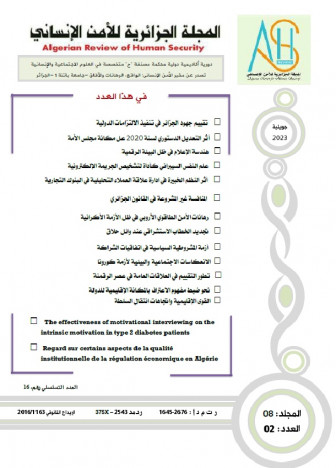The Freedom of Expression of the Civil Servant Between the Requirements of Enjoyment of the Rights of Citizenship and Preservation of the Interest of the Service
DOI:
https://doi.org/10.59791/arhs.v7i2.1645Keywords:
Freedom of expression, public officials, the interest of the service, duty of reserve, duty of neutralityAbstract
Public officials, like other citizens, enjoy the rights of constitutional citizenship, the most important of which is freedom of expression. The general status of the public service has recognized their ability to freely express their opinions and ideas whatever their nature (political, philosophical, ideological, etc.) without exposing themselves to any prejudice in their professional career because of the exercise of this freedom. However, their membership in the public service imposes the restriction of the exercise of this freedom in order to ensure its reconciliation with the requirements imposed by the membership in the public services, it is what the legislator tried to embody in the statute general of the civil service, where he restricted the civil servant's exercise of his freedom of expression by the fact that he did not infringe the duty of confidentiality imposed on him. The study aims to determine to what extent the legislator has struck a balance, in the framework of the freedom of expression guaranteed to the public official, between the requirements of the exercise by the latter of his freedom and the preservation of the interest of the service. The study has reached a fundamental conclusion, linked to the adequacy or balance of the legal regulation of this freedom, since it is based both on the recognition of it for the benefit of the civil servant and on the reconciliation of its exercise with the obligations imposed on it by belonging to the public services.





